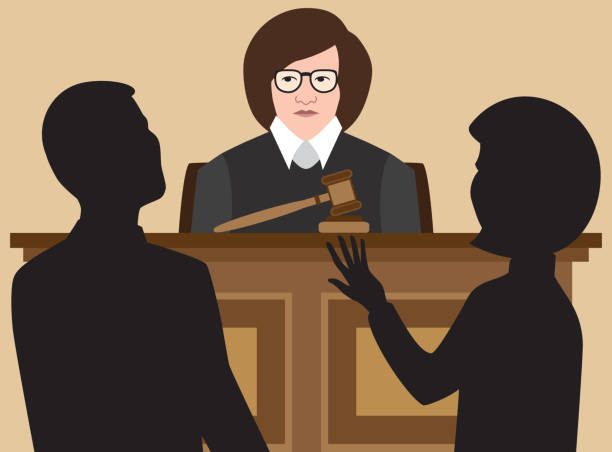

Articles 61 and 62 of the Constitution provide immunity from legal responsibility and prosecution for Members of Parliament. Under these provisions, a Member of Parliament cannot be prosecuted or investigated for an opinion or a vote given during the exercise of parliamentary duties. They can be prosecuted only for defamation, according to law, and with the prior permission of Parliament. They are under no obligation to testify in relation to information that they came by during the exercise of their duties, nor in relation to the persons who gave them the information, or to whom it was given. During the parliamentary term, a Member of Parliament may not be prosecuted, arrested, imprisoned or otherwise restricted without the permission of Parliament.
Using these constitutional articles as a basis, the Greek legislator has, over the years, passed various provisions which allow for the special (criminal, civil or disciplinary) treatment of specific groups of persons for events that took place during the exercise of their duties in the context of the operation of an administrative body. A series of provisions, therefore, establishes a kind of “protection” for such specific persons, and provides for various types and levels of legal responsibility and immunity. The following cases are indicative:
a) Article 269 of law 4798/2021 absolves from legal responsibility, prosecution and investigation the members of the National Committee for the Protection of Public Health against coronavirus COVID-19, the Committee for the Management of Public Health Emergencies by Infectious Diseases and the National Commission for Vaccinations, for any opinions expressed or votes given in the exercise of their duties in the context of the operation of the above Committees. Prosecution is allowed only for defamation or insult.
b) Paragraph 9 of Article 16 of law 4714/2020 establishes freedom from criminal and civil liability for a reasoned opinion, suggestion, proposal or decision made or omitted in the performance of their duties for the President and members of the Out-of-Court Settlement of Tax Disputes Committee. These protections do not apply in cases where the person acted fraudulently, or with the intent to gain unlawful material benefit for themselves or another, or to the detriment of the State or others, in accordance with penal provisions or in the case of the breach of confidentiality of information acquired during the performance of their duties. Article 70 of law 4871/2021 later amended this paragraph, extending its provisions to apply to members of the Administrative Dispute Resolution Committee of article 70A of law 2238/1994, as well as to the Dispute Resolution Directorate of the Independent Public Revenue Authority.
d) Article 38 of Law 4373/2016 provides that the President and members of the Professional Sports Committee and the National Anti-Doping Council, as well as the members of the Audit Boards of the General Secretariat of Sports, do not bear criminal or civil liability to third parties for opinions expressed or acts performed during the exercise of their duties. They may be prosecuted only for defamation, insult or violation of confidentiality and are liable to the Greek State for acts or omissions committed by way of deceit or gross negligence (see more about this case here).
For more examples you can also see these articles by Christos Mylonopoulos and Dimitris Tsilikis.
Provisions which provide for the special treatment of specific groups of persons for the acts they have performed in the performance of their duties potentially raise compatibility issues with constitutional principles and supranational provisions (such as those provided for in the European Convention on Human Rights). This is because such “discrimination” by the legislator (especially in cases where there is no specific reason for doing so, or when immunity is extended conditionally, or when it is applied retroactively) potentially conflicts with the principles of equality, of the separation of powers, of citizens’ right to judicial protection and, in general, access to justice or even the prohibition on granting amnesty for common crimes by law as per Article 47 paragraph 4 of the Constitution (see generally for the above issues 1, 2, 3, 4, 5, 6, 7 ).
In a state governed by the rule of law, everyone must be considered and treated as equal before the law, while at the same time the separation of powers and the independence of the judiciary to pass judgment on cases that come before them must be respected. The introduction of a different system of treatment for specific groups of persons can only call into question whether the above guarantees and principles are being observed, especially in cases where such a provision applies retroactively (such as in criminal cases under Article 2 of the Penal Code). For this reason, the introduction of provisions of immunity by the legislator should be avoided as much as possible. Only the courts are ultimately competent to judge the existence or non-existence of the criminal responsibility of any person by examining each individual case that comes before them, rather than the legislator doing so in advance or, even worse, in the middle of a case.
Bank Account number: 1100 0232 0016 560
IBAN: GR56 0140 1100 1100 0232 0016 560
BIC: CRBAGRAA
![]()
In a time where the very foundations of democracy are gradually being eroded by the rise of extreme nationalism, alt-right movements, the spread of disinformation and corporate capture, the efforts of organisations such as Vouliwatch are more relevant than ever.
We rely on the generosity of each and every one of you to continue with our efforts for more transparency and accounta
By financially supporting Vouliwatch you support our litigation strategy, our campaigns for transparency and accountability in the political system, the development of new civic tech tools, our research projects and last but not least our impartial and accurate